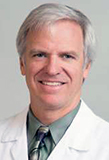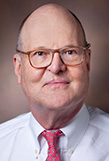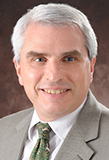ACR on Air Podcast

ACR on Air seeks to have informative conversations rheumatology professionals want to hear – ranging in topic from trends in clinical practice, to issues affecting rheumatology professionals, and the changing landscape of the rheumatology field. Tune in bi-weekly for new interviews and commentary that are sure to empower listeners to excel in their specialty.
Podcast Host

Our host, Jonathan Hausmann, MD, is a pediatric and adult rheumatologist at Massachusetts General Hospital and Boston Children’s Hospital. He is also an Assistant Professor of Medicine at Harvard Medical School. His research interests include autoinflammatory diseases, health technology, and medical education. Connect with Dr. Hausmann on Twitter (@hausmannMD).
Episodes
New episodes will be available twice a month on Tuesdays.
Episode 118 – The Next Era of Gout Therapy
Episode 117 – Precision Rheumatology, APS and You
Episode 116 – The Year Ahead for The ACR with Dr. Will Harvey
Episode 115 – The Evaluation and Management of Osteoporosis
Episode 114 – Degos Disease
Browse previous episodes in the ACR on Air archive.
Episode Show Notes
In this episode, we explore the paradox of gout—one of the most biologically understood and treatable diseases in medicine, yet still among the most poorly controlled chronic conditions in practice. With effective therapies readily available, why do patients continue to cycle through painful flares, start and stop medications, and return to clinics and hospitals in a pattern that feels like a recurring failure? We unpack the complex interplay between biology, patient behavior, medication adherence, and health system barriers, asking whether the problem lies in the disease itself or in how care is delivered. As new treatments emerge, we also question whether innovation alone can solve the problem—or whether lasting change requires fixing the systems struggling to fully use the tools already at hand.

John D. FitzGerald, MD, PhD, MBA – John D. FitzGerald, MD, PhD, MBA, is a rheumatologist and Clinical Chief of Rheumatology whose research focuses on improving care for patients with gout and other crystalline arthritides, including CPPD disease. He is the lead author of the American College of Rheumatology Gout Guidelines and Quality Improvement Measures and collaborates on innovative diagnostic and monitoring technologies, including a wearable uric acid sensor and a lens-free polarized microscope to detect gout and pseudogout crystals. His work also examines the relationship between gout, cholesterol, and atherosclerosis, as well as broader quality-of-care, outcomes, and health policy research, including musculoskeletal ultrasound standards. Dr. FitzGerald earned his MD from Tufts University and his PhD in Health Services from UCLA, where he also completed his residency and rheumatology fellowship, and has served on the UCLA faculty since 1999 while caring for patients across multiple Los Angeles–area sites, including the VA and RAND.
Don’t forget to like, share, and subscribe!
In this episode, we explore antiphospholipid syndrome (APS) with Dr. Yu (Ray) Zuo, MD, MS, beginning with a clear, clinically grounded explanation before diving into the personal and scientific journey that drew him to this notoriously complex disease. Along the way, Dr. Zuo shares a case that forever changed how he understands APS, then takes us inside his latest Arthritis & Rheumatology study, where machine learning reveals hidden patterns that may reshape how we think about patients and risk. The conversation moves from bedside to bench and back again, tackling what AI can—and can’t—do for rheumatology, where APS research is headed next, and what early investigators need to know to build impactful careers.

Dr. Yu (Ray) Zuo, MD, MS – Dr. Yu (Ray) Zuo, MD, MS, is the Edward T. and Ellen K. Dryer Early Career Professor of Rheumatology and an Assistant Professor in the Division of Rheumatology at the University of Michigan. His research focuses on the pathogenic role of neutrophil extracellular traps and infection-associated autoimmune responses in thromboinflammatory diseases, including antiphospholipid syndrome, vasculitis, juvenile dermatomyositis, and COVID-19.
Dr. Zuo has authored more than 57 peer-reviewed publications, with work published in leading journals such as Circulation, Blood, Science Translational Medicine, JAMA Cardiology, and Arthritis & Rheumatology. His research is supported by the NIH, the Rheumatology Research Foundation, the American Nephrology Research Foundation, and the Frankel Cardiovascular Center.
In recognition of his scientific contributions, he received the 2024 Young Physician Scientist Award from the American Society for Clinical Investigation. In addition to his research, Dr. Zuo is a highly regarded clinician-educator and recipient of the 2024 Joe McCune Excellence in Clinical Teaching Award. He was recently named an Alfred Taubman Institute Emerging Scholar and serves as the Associate Director of the Michigan Antiphospholipid Syndrome Program.
Don’t forget to like, share, and subscribe!
In this episode, we sit down with William F. Harvey, MD, MSc, FACR, the newly appointed President of the American College of Rheumatology and a dedicated volunteer of nearly 20 years. Dr. Harvey shares what it’s like stepping into the presidency, the key priorities shaping the year ahead, and how the ACR is approaching strategy, advocacy, partnerships, and leadership during this pivotal moment for the field.

William F. Harvey, MD, MSc, FACR – William F. Harvey, MD, MSc, FACR, is a rheumatologist and clinical informatician at Tufts Medicine in Boston. After serving as Clinical Director of the Division of Rheumatology, Allergy and Immunology for 10 years, Dr. Harvey moved into a system role as Deputy CIO and Chief Medical Informatics Officer. Dr. Harvey still finds great joy in clinical practice, and his clinical interests include osteoarthritis, gout, vasculitis, and scleroderma.
Since May of 2024, Dr. Harvey had been Interim-Chief of the Division of Rheumatology at Tufts Medicine. His research activities include clinical trials in rheumatology as well as informatics research across the clinical spectrum. He is the Co-Director of the Informatics Program at the Tufts Clinical and Translational Science Institute.
Since May of 2024, Dr. Harvey had been Interim-Chief of the Division of Rheumatology at Tufts Medicine. His research activities include clinical trials in rheumatology as well as informatics research across the clinical spectrum. He is the Co-Director of the Informatics Program at the Tufts Clinical and Translational Science Institute.
Dr. Harvey has a long history of volunteering with the ACR, including Chair of the Government Affairs Committee, two terms on the Board of Directors and Chair of the Registries and Health IT Committee. Dr. Harvey is honored to serve on the ACR Executive Committee. Dr. Harvey was born and raised in Hershey, PA, and is a graduate of Penn State University with undergraduate and medical degrees. He has an MSc in Epidemiology from Boston University where he did his fellowship and has called Boston home for almost 20 years.
Don’t forget to like, share, and subscribe!
In this episode, our expert guest challenges a common assumption by explaining why the T-score—despite being central to osteoporosis diagnosis—is surprisingly easy to misinterpret. He walks us through how to read a DEXA scan like a detective, highlighting subtle clues that can dramatically improve diagnostic accuracy for your patients. Once osteoporosis is identified, the conversation turns to clinical decision-making: how to choose between anabolic agents, denosumab, and bisphosphonates, and why that choice depends on thoughtful risk stratification and patient-specific comorbidities. We also dive into the often-overlooked importance of sequencing osteoporosis medications correctly, including a compelling discussion on why starting with an anabolic agent may offer greater long-term benefits than reserving it as a last-line option.

S. Bobo Tanner, MD – LS. Bobo Tanner, MD, graduated cum laude from Harvard University in Cambridge, Massachusetts, with a BA in History and Science, and received his medical degree with honors from Bowman Gray Medical School of Wake Forest University, Winston-Salem, North Carolina.
He completed his residency and ABIM Board Certification in Internal Medicine at the Vanderbilt University Hospital in Nashville, Tennessee, and completed fellowships and board certification in Rheumatology and in Allergy/Immunology.
Dr. Tanner has served as Registrar of the Department of Rheumatology at the Royal Free Hospital, London, England where he participated in Scleroderma studies.
His current position at Vanderbilt University is an Assistant Professor of Medicine in the Division of Rheumatology and the Division of Allergy and Immunology.
He founded and is the Director of the Vanderbilt Osteoporosis Clinic, where he sees patients with a variety of metabolic bone diseases and works with 3 nurse practitioners to provide daily clinical activities in bone health.
His research is a collaborative effort with Orthopaedic Surgery and Radiology Imaging to develop better ways to evaluate bone health. He is a past president and board member of the International Society for Clinical Densitometry (ISCD) where he teaches the Quality Bone Density course and helps develops professional guidelines for the use and reporting of DXA. He was awarded the Lifetime Achievement Award by the Irish Dual-energy X-ray Absorptiometry Society in 2024 and the Paul Miller MD Educator of the Year Award at the Santa Fe Bone Symposium, 24th Annual Meeting in 2024.
Don’t forget to like, share, and subscribe!
In this episode, we explore malignant atrophic papulosis—also known as Degos disease—an extraordinarily rare microvascular disorder so uncommon that most clinicians will never see a single case. For decades, medical literature labeled it “uniformly fatal.” Our guest, Lee Shapiro, MD, encountered this reality when he began treating a rapidly deteriorating 16-year-old boy with no clear treatment path. Driven by urgency, he reached out to experts across the country, slowly piecing together clues that ultimately led to the first successful treatment of systemic Degos disease. Today, Dr. Shapiro is a leading advocate for patients, connecting a global community, promoting early recognition, and working tirelessly to expand access to life-saving therapies.
Learn more at The Degos Disease Foundation.

Lee Schulman Shapiro, MD – Lee Schulman Shapiro, MD, is a distinguished rheumatologist recognized for more than four decades of clinical care, research, and leadership in systemic sclerosis and Degos disease. Dr. Shapiro earned his BA magna cum laude in 1973 and his MD from Columbia University in 1977 before completing internal medicine training and a rheumatology fellowship at the University of Pittsburgh under Dr. Gerald Rodnan. Dr. Shapiro spent his career practicing and teaching in New York’s Capital Region, serving on the rheumatology staff of St. Peter’s Hospital, Albany Medical Center, and Saratoga Hospital, and ultimately becoming Professor of Medicine (Emeritus) at Albany Medical College and Director of its Scleroderma Clinic. A fellow of the American College of Rheumatology and American College of Physicians, he has authored numerous influential publications on systemic sclerosis, pulmonary hypertension, and Degos disease. He founded and serves as Chief Medical Officer of both the Ann Steffens Scleroderma Research Foundation and the Degos Disease Foundation, advancing clinical research and patient advocacy internationally. Widely honored—including the Scleroderma Foundation’s Distinguished Physician Lifetime Achievement Award and repeated Castle Connolly “Best Doctor” recognitions—Dr. Shapiro is regarded as a leading voice in rare disease research, interdisciplinary education, and compassionate patient-centered care.
Don’t forget to like, share, and subscribe!
